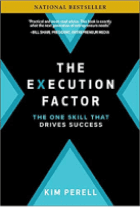Startups led by women are more profitable than those run by men. Of 300 companies seeded between 2005 and 2015, those founded by a woman outperformed those with male founders by 63 percent. And the ROI of women-led tech companies averages 35 percent higher than men in their field.
But there is a discrepancy when it comes to funding. While companies with male leadership received 60 percent more likely to receive funding.
Developing Confidence in Your Ideas
In my experience, the problem stems from the number of women pitching to begin with. Out of 60 companies I have invested in, only a handful are led by women. I’m not the only angel investor who is disappointed by the lack of female entrepreneurs.
I want to tackle the issue at the source: the pitching process.
It makes no difference whether you are a man or a woman; if you have a good idea and know how to execute it, you can succeed. The key is to make sure your confidence is stronger than anyone’s doubt. I have never once thought of myself in terms of my gender. Even when others have doubted me, I’ve committed to doing whatever it took to reach my goals. You must be willing to put yourself out there and network with potential investors and business partners.
I was 23 years old when I started my first company — of course I had doubts! But I had confidence in my knowledge of internet marketing, and, despite the collapse of the dot-com bubble, I knew I could succeed. Everyone thought I was crazy. Starting a company in the worst time in the market at 23? As an entrepreneur, ultimately, your belief in yourself must be stronger than anyone’s doubt.
How to Pitch Successfully
The most important factor that inspires me to invest in someone is this: Can you convince me of your ability to execute? Do I believe you will take action, get results, and overcome obstacles? If I’m not certain you can pull it off, I won’t invest. Here are three tips for crafting a pitch no one will turn down:
1. Master your elevator speech.
Make sure you have perfected your “elevator pitch.” That means that you have a quick, easy-to-understand version of your pitch that you can deliver in less time than it takes to ride an elevator.
You should be able to explain your idea to anyone, any time. Staying concise matters during the real deal, too — your first meeting with investors will not be long. The extended version of your pitch should take no more than 20 minutes.
2. Account for every possible question.
Your pitch needs to address every question an investor could have. What is the market need, and who is demanding it? How does your idea solve that need? Use your elevator pitch. How will your idea make both revenue and profit?
You need to really sell your investors — what have other companies in the space sold for? How much capital will you need, and how will you use it? Investors want to know what they will get out of their contribution, so calculate your request by estimating double the time and cost you expect. Plan for the worst-case scenario.
3. Convince investors to believe in you.
Your biggest challenge is convincing investors to believe in your ability to execute, so tell them your story. What have you done that proves you can make this happen? Businesses may change and trends may pivot — investors need to be confident that you can pivot, too.
Surround yourself with a team that supplements any perceived weaknesses, and convey both realism and passion so potential investors can see that you will persevere, no matter what it takes.
Success doesn’t depend on your gender; it depends on your ability to work hard and make others believe in you, too. If you can pitch your idea so that investors are confident in you, success is just around the corner.
Kim Perell is a CEO, serial tech entrepreneur, prominent angel investor, and author of two best-selling business books. She is a leader, innovator, and keynote speaker.










